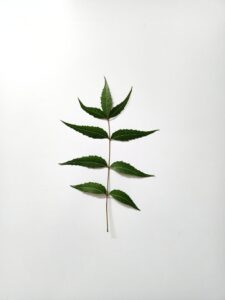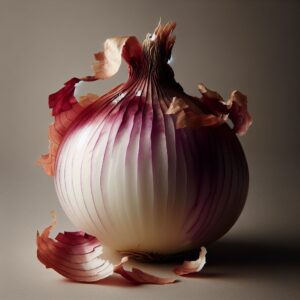
Hair Today, More Tomorrow: Natural Postpartum Hair Revival
Welcome, new moms! If you’re witnessing more hair in your brush than usual, know that you’re not alone. Postpartum hair loss is a common occurrence, but that doesn’t make it any less distressing. The journey to regaining your lush locks doesn’t have to be daunting. I’m here to guide you through the best natural remedies that are not only effective but also safe for you and your baby.
Why Postpartum Hair Throws a Curveball
During pregnancy, elevated estrogen levels keep your hair in a prolonged growth phase. It’s why many women enjoy thicker, more vibrant hair while expecting. But after childbirth, as hormone levels normalize, your hair compensates by shedding. This can be alarming, but it’s typically temporary. The key to navigating this phase is understanding that it’s a natural process and there are gentle ways to encourage regrowth and maintain hair health.
Nourishing From Within: Dietary Solutions
What you put into your body is just as important as what you put on your hair. A balanced diet rich in essential nutrients is the foundation for strong, healthy hair growth. Here are some dietary must-haves:
- Iron-rich foods: Lean meats, spinach, and lentils can help combat postpartum anemia, a common cause of hair loss.
- Protein: Hair is primarily made of protein, so include plenty of nuts, and fish in your meals.
- Hydration: Water is crucial for transporting nutrients to the hair follicles. Aim for at least eight glasses a day.
- Omega-3s: Flaxseeds, walnuts, and fatty fish like salmon support scalp health and may improve hair density.
- Antioxidants and vitamins: Colorful fruits and vegetables, packed with vitamins A, C, and E, protect hair follicles from damage.
Scalp Care Strategies: Topical Treatments
Topical treatments are a fantastic way to directly nourish your scalp and hair. Here’s how to pamper your scalp:
- Massage with essential oils: Oils like rosemary and peppermint can stimulate the scalp and promote circulation.
- Natural shampoos and conditioners: Look for products free from harsh chemicals that can strip hair of its natural oils.
- Homemade hair masks: Ingredients like avocado and honey can deeply moisturize and strengthen hair.
- Herbal rinses: Rinsing hair with teas made from herbs like chamomile or nettle can soothe the scalp and enhance shine.

Supplementing for Strength: Vitamins & Minerals
Even with a balanced diet, you might need an extra boost. Supplements can fill any nutritional gaps:
- Biotin: Known to improve hair growth, but check with your doctor before starting any new supplement.
- Vitamin D: Low levels are linked to hair loss, so consider a supplement, especially in the winter months.
- Zinc: It plays a role in hair tissue growth and repair, but be mindful not to exceed the recommended dose.
- Iron: If you’re anemic, an iron supplement might be necessary, but again, consult your healthcare provider first.
Gentle Hair Care Routines: Preventing Further Loss
How you handle your hair can affect its health. Here are some tips to prevent further hair loss:
- Be gentle when brushing: Use a wide-tooth comb and detangle from the ends up to reduce breakage.
- Avoid high heat: Let your hair air-dry when possible and use the lowest heat setting on styling tools.
- Switch to a silk pillowcase: It reduces friction and helps prevent hair tangling and breakage while you sleep.
- Regular trims: Keeping your hair trimmed can prevent split ends from working their way up the hair shaft.

Remember, patience is key. Your hair didn’t thin overnight, and it won’t thicken overnight either. But with these strategies, you’re well on your way to a fuller head of hair.
Nourishing From Within: Dietary Solutions
Let’s dive deeper into the dietary solutions that can help combat postpartum hair loss. After all, the health of your hair is a reflection of your overall nutrition.
Foods Rich in Iron and Proteins
Iron deficiency is a common postpartum issue that can exacerbate hair loss. To replenish your iron stores, focus on incorporating iron-rich foods like:
- Red meat (opt for grass-fed if possible)
- Leafy greens such as spinach and kale
- Legumes, including beans, chickpeas, and lentils
Proteins are the building blocks of hair. Ensure you’re getting enough by eating:
- Lean meats like chicken and turkey
- Plant-based proteins such as quinoa
- Dairy products, which also provide calcium for hair strength
Hydration: The Foundation of Healthy Hair
Dehydration can lead to dry, brittle hair. Keep your hydration levels up with water and hydrating foods like cucumbers, watermelon, and oranges. These not only provide water but also essential vitamins and minerals.
Omega-3s: Fatty Acids for Follicle Care
Omega-3 fatty acids are vital for hair growth and can be found in:
- Flaxseeds and chia seeds
- Walnuts
- Fatty fish such as salmon, mackerel, and sardines
They help nourish the hair follicles and encourage growth, making them an essential part of your postpartum diet.
Antioxidants and Vitamins: A Colorful Diet
A diet rich in colorful fruits and vegetables ensures you’re getting a wide range of antioxidants and vitamins necessary for healthy hair. Berries, sweet potatoes, and bell peppers are all excellent choices. These foods combat oxidative stress, which can impact hair growth.
By focusing on these natural remedies and incorporating them into your daily routine, you can help mitigate postpartum hair loss and set the stage for regrowth. It’s not just about the hair on your head—it’s about feeling like yourself again, confident and empowered.
Foods Rich in Iron and Proteins
Iron and protein are two critical nutrients for hair growth, and their importance can’t be overstated. Iron helps red blood cells carry oxygen to your cells, including those that stimulate hair growth. Lean into iron-rich foods like:
- Spinach and other dark leafy greens
- Lentils and beans for plant-based iron
- Fortified cereals that make breakfast a breeze
Protein, on the other hand, gives your hair the structural support it needs. Without adequate protein, hair can become weak and brittle. Here’s how to pack protein into your diet:
- Chicken or turkey – great for lean, low-fat options
- Fish – which doubles up as a source of omega-3s
Hydration: The Foundation of Healthy Hair
Hydration is not just about drinking water; it’s about maintaining a balance that supports your entire body, including your hair. Water is a key component of the hair shaft, and insufficient hydration can lead to brittle hair and breakage. Aim for at least 8-10 glasses of water a day and incorporate hydrating foods into your diet, like:
- Cucumbers, which are almost 95% water
- Watermelon, a sweet treat that’s hydrating and low in calories
- Oranges, which provide hydration and a dose of vitamin C
Omega-3s: Fatty Acids for Follicle Care
Omega-3 fatty acids are a powerhouse for hair health. They nourish the hair follicles and keep the scalp and hair hydrated. Omega-3s can be found in:
- Salmon and mackerel, which are also excellent sources of protein
- Flaxseeds, which can be added to smoothies or sprinkled on salads
- Walnuts, a convenient snack that’s also rich in biotin and vitamin E
These fatty acids have anti-inflammatory properties that can help open up the hair follicles and promote hair growth.
Antioxidants and Vitamins: A Colorful Diet
Antioxidants protect your body’s cells from damage, including those in your hair follicles. Vitamins, such as A, C, and E, play a significant role in hair health. A diet rich in colorful fruits and vegetables ensures a broad spectrum of these nutrients. Some top picks include:
- Berries, packed with vitamin C, which has antioxidant properties
- Sweet potatoes, a great source of beta-carotene, which converts to vitamin A
- Bell peppers, high in both vitamin C and A
These foods not only help maintain healthy hair but also contribute to overall well-being.
Scalp Care Strategies: Topical Treatments
While a good diet is essential, topical treatments offer direct benefits to your scalp and hair. They can soothe the scalp, strengthen hair, and even stimulate hair growth. Let’s explore some effective topical treatments.
Essential Oils for Enhanced Circulation
Essential oils are not just for aromatherapy; they can also be a boon for your scalp. Here’s how to use them:
- Rosemary oil is known to enhance scalp circulation and has been shown to be as effective as minoxidil, a common hair growth treatment.
- Peppermint oil can create a tingling sensation, boosting circulation to the area and potentially promoting hair growth.
- Lavender oil has properties that can generate new skin cells, which may be beneficial for hair growth.
Mix a few drops of these oils with a carrier oil like coconut or jojoba oil and massage into your scalp for a relaxing and beneficial treatment.
Gentle, Natural Shampoos and Conditioners
What you wash your hair with can make a big difference in its health. Harsh chemicals found in some shampoos can strip hair of its natural oils, leading to dryness and breakage. Instead, look for gentle, natural shampoos and conditioners that contain nourishing ingredients like:
- Aloe vera, which can soothe the scalp and provide moisture
- Tea tree oil, known for its antimicrobial properties
- Argan oil, which can hydrate and soften hair
These natural ingredients can help maintain the health of your hair without exposing you or your baby to unnecessary chemicals.
DIY Hair Masks: Kitchen to Hair Care
Creating your own hair masks is a cost-effective and natural way to provide your hair with the nutrients it needs to thrive. Here’s how to whip up some nourishing hair masks using ingredients from your kitchen:
- Avocado mask: Mash a ripe avocado with a tablespoon of olive oil and apply to your hair. Avocado is rich in vitamins B and E, which work at the cellular level to protect and strengthen hair.
- Banana mask: Blend a ripe banana with a bit of honey. This mask is great for moisture and shine, thanks to the natural oils and potassium in bananas.
- Egg mask: Beat an egg and apply it to your scalp and hair. Eggs are packed with protein, which can help to repair and strengthen your hair.
Leave these masks on for about 20-30 minutes before rinsing with a gentle shampoo. Regular use can help to restore hair’s natural vitality.
Herbal Rinses: An Ancient Practice
Herbs have been used for centuries to care for hair. Here are some herbal rinses you can easily make at home:
- Chamomile rinse: Brew a strong pot of chamomile tea and let it cool. Rinse your hair with it after shampooing to add shine and soothe the scalp.
- Nettle rinse: Steep nettle leaves in boiling water, strain, and cool. Nettle can help reduce inflammation and is said to promote hair growth.
- Rosemary rinse: Simmer rosemary in water, strain, and cool. Rosemary is renowned for stimulating hair growth and enhancing hair color.
Use these rinses as a final step in your hair care routine to leverage the natural benefits of herbs.
Gentle Hair Care Practices
As you work towards restoring your hair’s health, it’s crucial to adopt gentle hair care practices. These will not only prevent further hair loss but also support the natural regrowth process. Here’s what you can do to minimize damage and maximize hair health.
Brushing Techniques: Being Kind to Your Scalp
When it comes to brushing, technique matters. Tugging too hard can cause breakage and even pull hair out from the roots. Instead, follow these steps:
- Use a brush with natural bristles or a wide-tooth comb.
- Start detangling from the ends of your hair, working your way up to the roots.
- Hold your hair midway while brushing to avoid pulling on the scalp.
Remember, your hair is most vulnerable when it’s wet, so be extra gentle after a shower and consider using a detangling spray to ease the process.
Avoiding Heat: Styling with Care
Heat styling tools can weaken your hair, leading to more shedding. To protect your locks:
- Let your hair air dry as often as possible.
- If you must use heat, apply a heat protectant and use the lowest setting.
- Explore heat-free styling methods, like braids or buns, for a chic look that’s also hair-friendly.
These simple changes can significantly reduce heat damage and help preserve your hair’s integrity.
The Pillowcase Change: A Small Step with Big Impact
Switching to a silk or satin pillowcase can reduce friction and prevent hair tangling and breakage while you sleep. Unlike cotton, these materials are smoother and allow your hair to glide over the surface, which means less stress on your strands.
It’s a small investment that can lead to a noticeable difference in your hair’s health and appearance.
Trims and Textures: Haircuts for Healthier Hair
Regular trims are essential for keeping your hair healthy as they remove split ends and prevent them from traveling up the hair shaft. Consider a haircut that adds texture, which can give the appearance of more volume and make your hair easier to manage.
Discuss with your hairstylist about styles that can make your hair look fuller and require minimal styling effort.
Key Takeaways: A Snapshot of Solutions
- Adopt gentle brushing techniques to avoid damaging your hair and scalp.
- Minimize the use of heat on your hair to prevent breakage and loss.
- Switch to a silk or satin pillowcase to reduce friction and tangling.
- Get regular trims to maintain hair health and consider textured cuts for added volume.
By incorporating these gentle hair care routines, you’ll be taking proactive steps to not only prevent further hair loss but also to support the health and regrowth of your hair.


